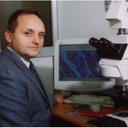Searching for highly sensitive and specific biomarkers for sepsis: State-of-the-art in post-mortem diagnosis of sepsis through immunohistochemical analysis.
Ключови думи
Резюме
The autoptical observations commonly ascribed to sepsis deal with unspecific general and local signs of inflammation or ischemia, such as myocardial inflammation, pulmonary edema and infiltration, cerebral swallowing, and tubular necrosis in the kidney. In the two last decades, some studies have been carried out to implement immunohistochemical markers for post-mortem diagnosis. All of these target molecules are specifically up-regulated or down-regulated during systemic inflammatory responses, especially for infective causes. Among these, we found some antigens expressed on leukocyte surfaces (very late antigen-4 (VLA-4), cluster differentiation-15 (CD15)), enzyme contained in neutrophils granules (lysozyme (LZ), lactoferrin (LF)), endothelial markers and junctions (E-selectin, vascular endothelial cadherin (VE-cadherin)), and soluble factors (vascular endothelial growth factor (VEGF), tumor necrosis factor alpha (TNFα), procalcitonin (PCT), soluble triggering receptor expressed on myeloid cells-1 (s-TREM-1)). All of these showed potential reliability in differentiating sepsis cases from controls. Further studies are needed to provide a concrete validation for a combination of markers on specific organ samples in order to reach a post-mortem diagnosis of sepsis also in the absence of clinical records.



